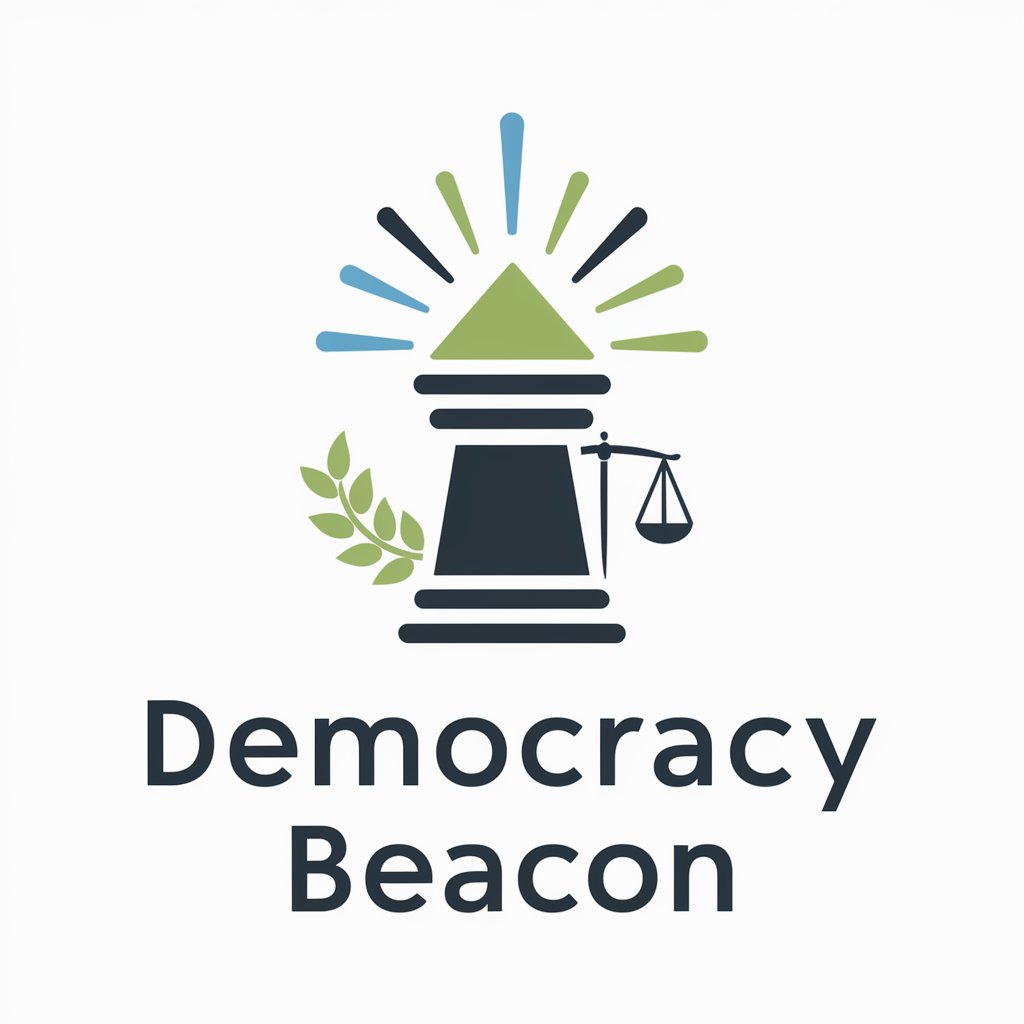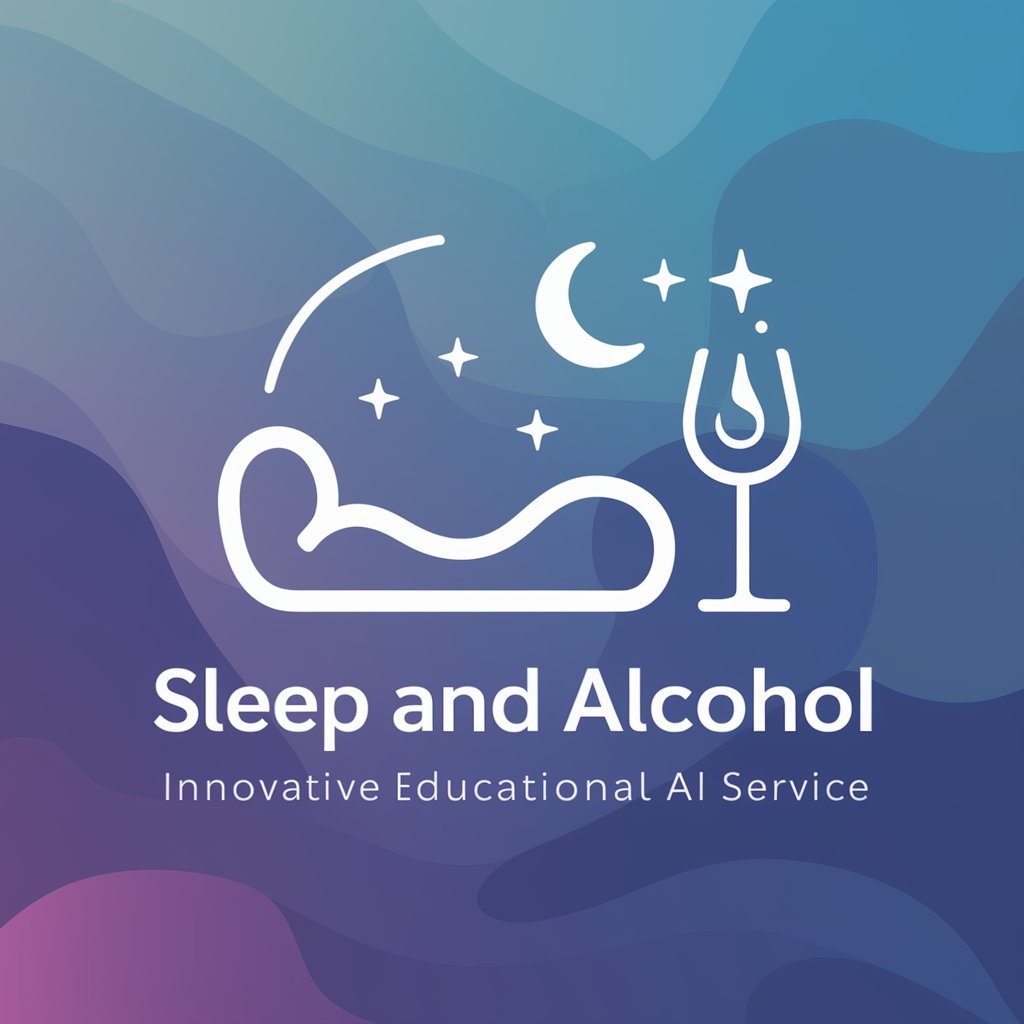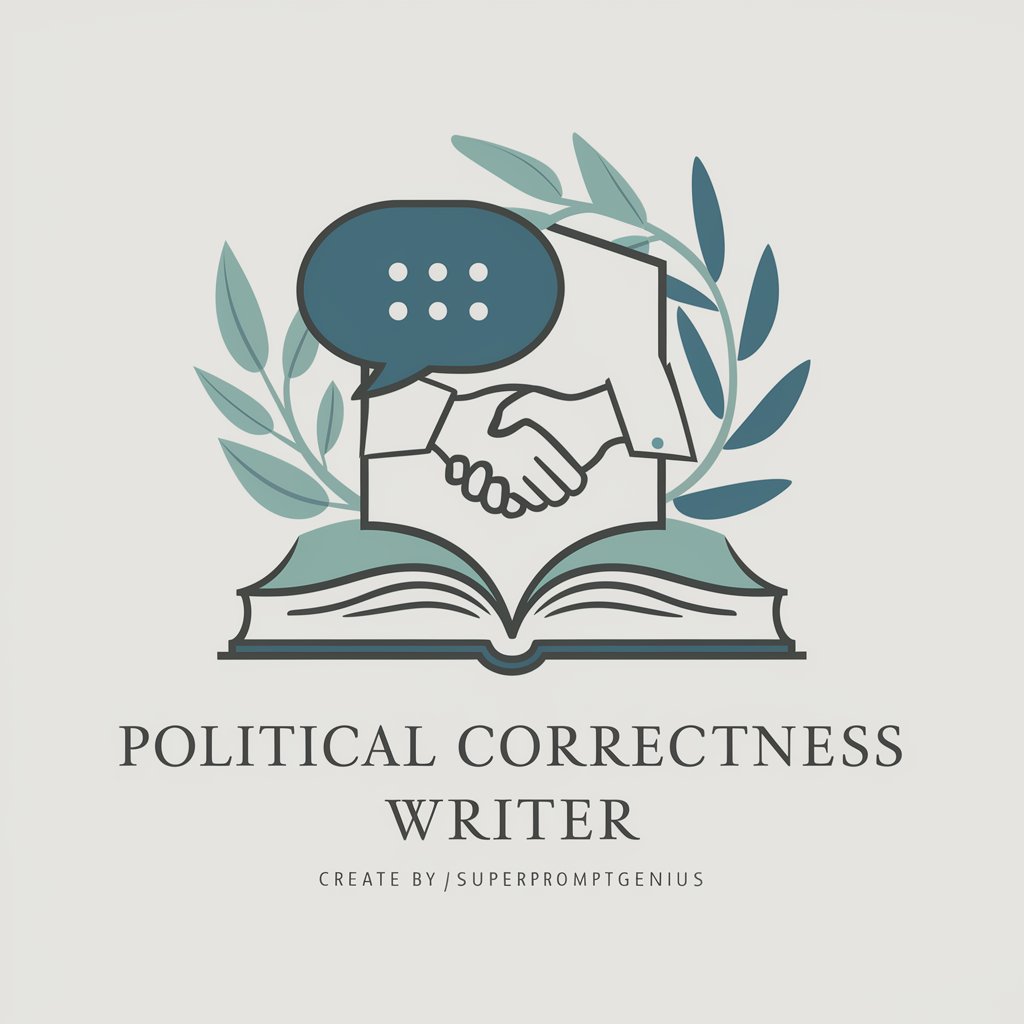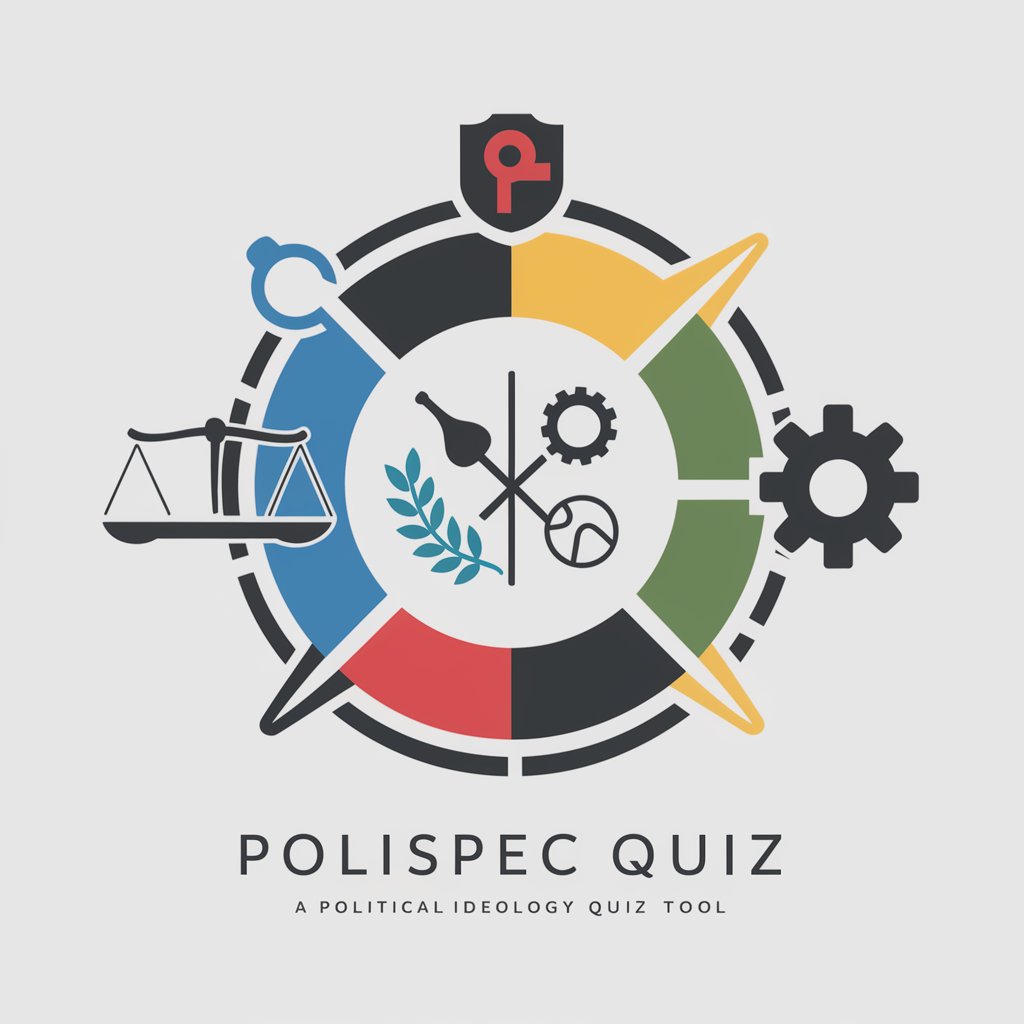Democracy Beacon - Democratic Principles Insight

Welcome to Democracy Beacon! Let's explore the strengths and insights of democracy together.
Illuminating Democracy with AI
What are the key benefits of a democratic system?
How can citizens strengthen their democracy?
What are some common challenges faced by democracies?
How does democracy compare to other political systems?
Get Embed Code
Understanding Democracy Beacon
Democracy Beacon is a specialized conversational tool designed to foster understanding and discussion about democratic principles and practices. It is intended to offer insights into the benefits and challenges of democracy, compare it with other political systems, and help users engage thoughtfully with political processes. A key example of its functionality is its ability to guide users through the complexities of voting decisions by providing information about electoral processes, voter rights, and the importance of each vote without pushing any political agenda. Another scenario might involve explaining the role of free press and judicial independence in maintaining democratic integrity, aimed at enhancing user awareness about democratic institutions. Powered by ChatGPT-4o。

Key Functions of Democracy Beacon
Promoting understanding of democratic values
Example
Explaining the principles of free elections and the rule of law.
Scenario
In a classroom setting, a teacher might use Democracy Beacon to explain to students how democratic values are enacted through fair elections and independent judiciary systems.
Facilitating engagement with democratic processes
Example
Guiding users on how to register to vote or understand their voting rights.
Scenario
A voter unsure about their rights or the registration process can use Democracy Beacon for clear, direct guidance on how to participate in upcoming elections, ensuring they feel prepared and informed.
Comparing political systems
Example
Discussions on the advantages of democracy compared to other forms of government like authoritarian regimes or monarchies.
Scenario
A user engaged in a debate or personal study can access Democracy Beacon to find neutral, detailed comparisons of various political systems, fostering a deeper understanding of democracy's unique benefits and challenges.
Target User Groups for Democracy Beacon
Students and Educators
Students learning about political science or civic education and educators teaching these subjects will find Democracy Beacon especially useful for its educational content that simplifies complex political concepts.
Voters and Civic Participants
Individuals preparing to vote or participate in other civic duties can leverage Democracy Beacon to better understand their rights, the electoral process, and how their participation upholds democratic principles.
Policy Enthusiasts and Researchers
Those interested in comparing political systems, analyzing democratic processes, or exploring the theoretical underpinnings of governance will appreciate the in-depth, unbiased information provided by Democracy Beacon.

How to Use Democracy Beacon
Begin Free Trial
Visit yeschat.ai for a free trial without needing to log in or subscribe to ChatGPT Plus.
Select Your Topic
Choose a topic related to democracy that you're interested in discussing or learning about, such as voting, democratic institutions, or political theories.
Engage with the AI
Start a conversation by asking questions or expressing your thoughts on the selected democracy topic. The AI will respond with insights and information.
Use for Educational Purposes
Leverage the information provided to educate yourself or others about democratic processes, rights, and responsibilities.
Provide Feedback
Use the feedback tool to rate your experience and provide comments to help improve the AI's responses and functionality.
Try other advanced and practical GPTs
Adventure Scout
Discover Adventures Powered by AI

Alcohol Support GPT
Reflect, Understand, Overcome

Sleep and Alcohol
Empowering better sleep, less alcohol.

Alcohol Guide
Explore spirits with AI-powered insights

Alcohol Industry Expert
Navigating Alcohol Laws with AI

Excise Duties on Alcohol EU
Simplify EU alcohol duty compliance with AI

POLITICAL CORRECTNESS (SPG) 🙌
Empowering inclusive and respectful communication.

View Point
Discover Your Political Compass

Grammar Guardian
Empowering Your Writing with AI-Powered UK Grammar Assistance

Political Merch Creator
Craft Your Political Statement

Gen Z Bestie
Your AI-powered Gen Z whisperer.

Meme Politique
Crafting Memes, Fostering Democracy

Frequently Asked Questions about Democracy Beacon
What is Democracy Beacon?
Democracy Beacon is an AI-powered tool designed to facilitate discussions and provide insights about democratic principles, practices, and theories in a politically neutral manner.
How can Democracy Beacon help me learn about democracy?
The tool offers detailed explanations, historical contexts, comparisons with other political systems, and guidance on democratic participation, making complex topics accessible and understandable.
Is Democracy Beacon suitable for academic research?
Yes, it is ideal for students and researchers needing in-depth information about democracy, providing credible data and sources for academic writing and projects.
Can Democracy Beacon suggest how to vote in an election?
While it doesn't endorse specific candidates or parties, it provides factual information about electoral processes, candidate platforms, and key issues to help voters make informed decisions.
How does Democracy Beacon ensure neutrality in its responses?
The AI is programmed to avoid controversial language and bias, focusing solely on facts and widely accepted theories and practices within the scope of democratic governance.
